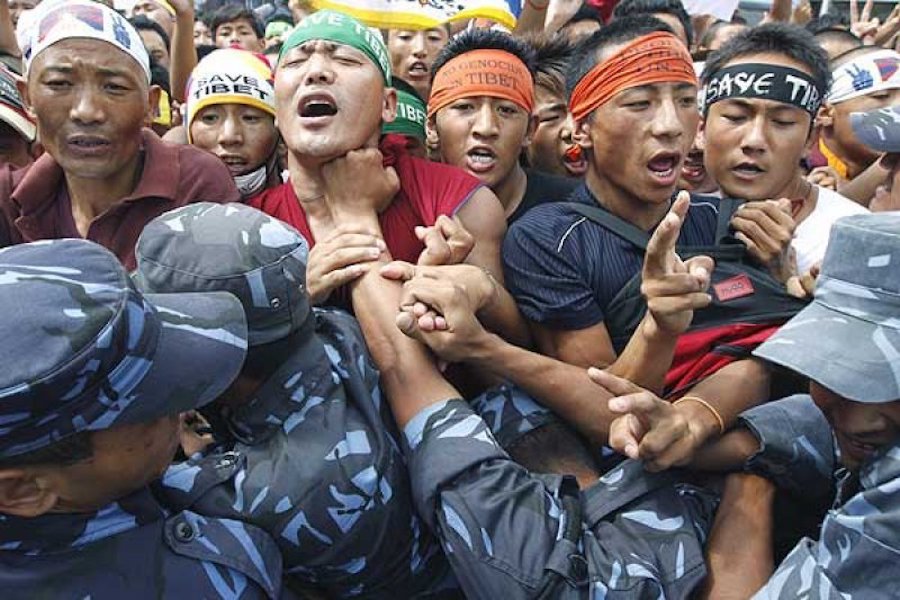By Tenzin Nyidon
DHARAMSHALA, Aug 22: The United Commission on International Religious Freedom (USCIRF) in its annual report has said Nepal has violated the religious freedom of the Tibetan Buddhist community and their right to freedom of religion or belief, highlighting the ongoing challenges faced by the Tibetan community residing in the country.
According to the USCIRF’s report, the legal framework in Nepal imposes restrictions on religious activities, particularly targeting the Tibetan community. The report notes that “the Tibetan Buddhist refugee population has faced continued legal impediments to their right to freedom of religion or belief.” These challenges are attributed to the policies and regulations of the Nepalese government, which reportedly constrain and restrict the religious practices of Tibetans, particularly those associated with the Tibetan Buddhist faith.
The findings also revealed instances of government surveillance and control over religious gatherings, ceremonies, and events involving Tibetans in Nepal. In 2022, for instance, the Nepalese government granted a brief two-hour window for Tibetan refugees to celebrate the birthday of their spiritual leader, the Dalai Lama. However, public displays of devotion to the exiled spiritual leader remain generally prohibited, enforced through constant surveillance, home visits, and searches of Tibetan refugees.
The report highlighted additional challenges faced by Tibetan refugees upon their arrival in Nepal, including the denial of identity cards, harassment, detention, and potential deportation by Nepalese authorities. Nepal’s extradition treaty with China which dictates that individuals found near the Nepal-China border can be handed over to Chinese authorities within seven days of detainment. This treaty poses a threat to refugees’ safety, as it puts them at risk of facing persecution or inhuman treatment upon return to China, the report stated.
USCIRF also condemned Nepal’s continuous violations of the rights of Tibetan refugees including the denial of identity cards, and constant surveillance. Additionally, USCIRF expressed deep concern over the potential return of Tibetan refugees to China, as it contradicts the principle of non-refoulement, a fundamental tenet of international humanitarian and human rights law that dictates that no individual should be returned to a country where they face a credible risk of persecution or harm.
The 2008 Tibetan uprising marked a significant turning point for Tibetans both within Tibet and in neighbouring Nepal. The Chinese government’s response to the uprising, along with its efforts to exert influence beyond its borders, especially in Nepal, sharing a significant border with China and hosting a sizeable Tibetan community, has exerted pressure on Nepal to cooperate in restricting the basic rights of Tibetans. Nepal has signed security and intelligence-sharing agreements with China since 2008, which has implications for Tibetan refugees and activists in Nepal. Under pressure from China and as a means of reassuring Beijing, Nepal has implemented severe crackdowns on Tibetans involved in actions deemed unfavourable to China’s interests. Notably, activities like celebrating the birthday of His Holiness the Dalai Lama, the 1989 Nobel Peace laureate and Tibet’s exiled spiritual leader.











One Response
Banning and restricting on Tibetan religious gatherings are happening in Nepal due to communist Chinese government bribe corrupt Nepali politicians, they paid huge bribes amounts. These will keep happening in future unless US, European Union and UN take necessary step like reducing Aids to Nepali government, visa ban and freezing of financial accounts of Nepali politicians who are involved directly or indirectly in religious freedom in Nepal China.